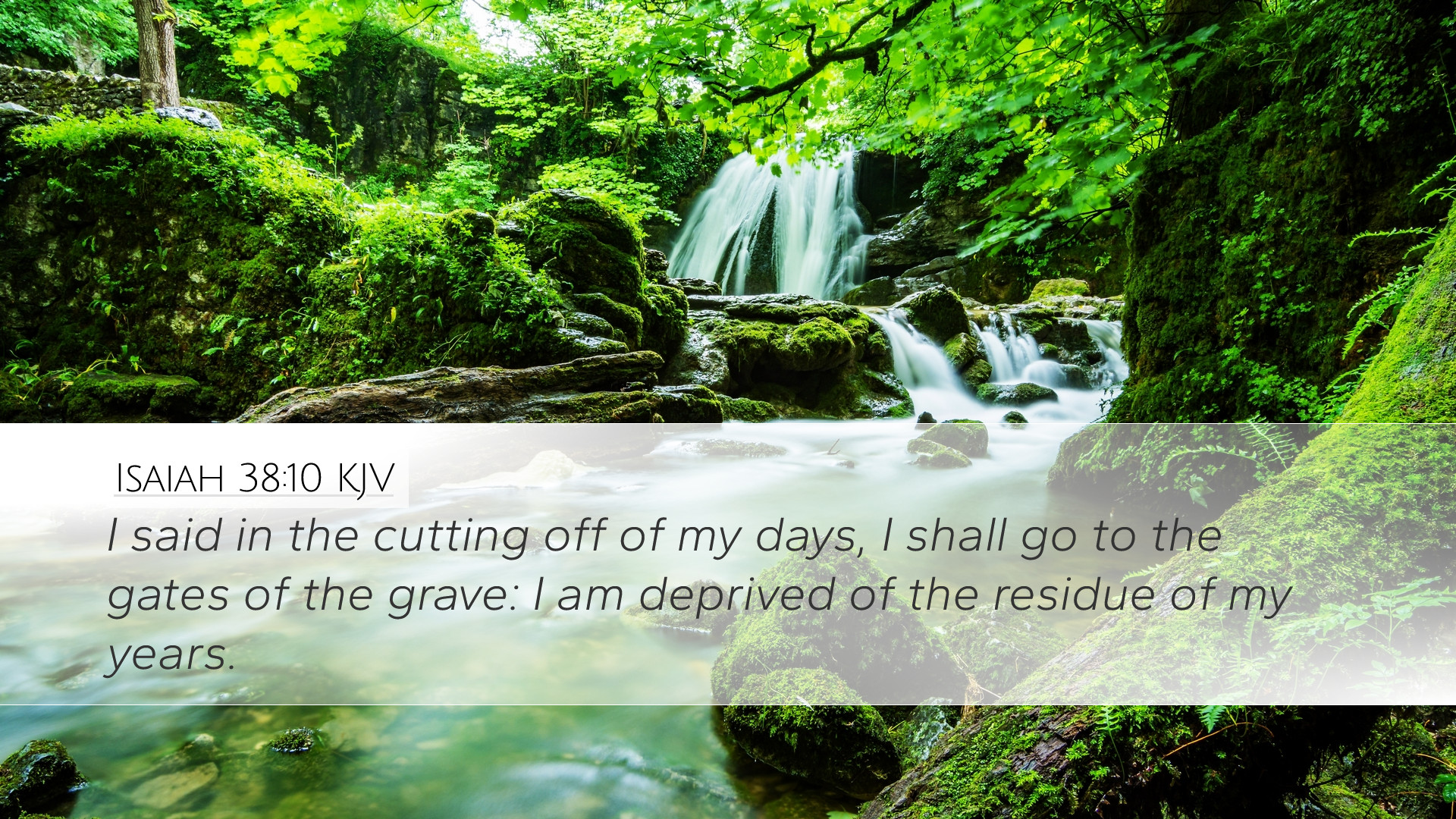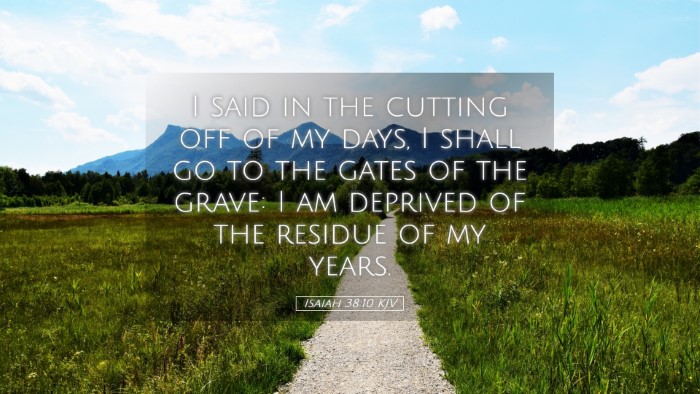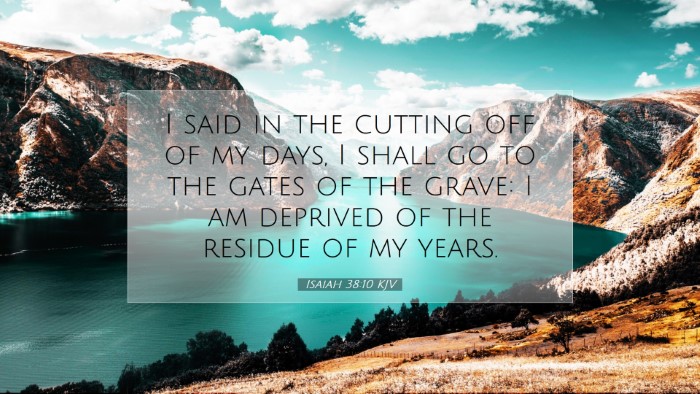Commentary on Isaiah 38:10
Verse Context: Isaiah 38:10 states, “I said, In the cutting off of my days I shall go to the gates of the grave: I am deprived of the residue of my years.” In this verse, the prophet Isaiah records a poignant moment in his life, reflecting on mortality and the transience of life.
Analysis of the Verse
Understanding the Human Condition: Isaiah expresses a profound recognition of life's brevity. The phrase “the cutting off of my days” indicates a sense of impending mortality, echoing the common human dilemma of grappling with death. The awareness of his own mortality instills in him a deep introspection.
Imagery of the Grave: The “gates of the grave” metaphorically represent the threshold of death. This imagery signifies not only the end of life but also the finality of human experience. Commentators emphasize that this powerful expression allows readers to feel the weight of despair that often accompanies sickness and the thought of death.
Commentary Insights
Matthew Henry
Matthew Henry reflects on this verse, noting that Isaiah's lament highlights the inevitable reality of human frailty. He speaks to the emotional struggle Isaiah faces, feeling “deprived” of his years. Henry emphasizes that this feeling of deprivation stems from an acute awareness of God’s sovereignty over life and death.
- Frustration with Mortality: Henry suggests that the acknowledgment of shortness of days often leads the faithful to a deeper relationship with God as they seek hope beyond the grave.
- The Importance of Reflection: Henry also emphasizes that such moments of reflection serve as divine invitations to contemplate eternal realities, urging believers to consider their lives in light of eternity.
Albert Barnes
Albert Barnes provides a meticulous examination of the phrase “I am deprived of the residue of my years,” contending that it captures a profound sense of loss. He suggests that Igor, feeling that his life is being cut short, leads to an inevitable confrontation with the realities of God’s plan for humanity.
- Seeking God's Mercy: Barnes asserts that this lament encourages believers to seek God's mercy actively. It illustrates how recognition of one’s limitations can compel an approach to God, seeking healing and restoration.
- The Nature of Suffering: He further explores the role of suffering and illness in deepening one's faith, suggesting that Isaiah’s struggle is a reminder that hardship can refine character and strengthen reliance on God.
Adam Clarke
Adam Clarke approaches the verse with an emphasis on the prayerful attitude of Isaiah. He notes that in this moment of despair, Isaiah turns toward God, which ought to characterize the believer's response when confronted with mortality.
- Isaiah's Desperation: Clarke emphasizes that the acknowledgment of mortality leads Isaiah to seek divine intervention. His desperation reveals the innate human desire for continuity in life, a desire that reflects the theological truth of resurrection and life eternal.
- Hope in Despair: Clarke contends that even in the depths of despair, there exists the hope of deliverance through faith. He highlights how Isaiah, while lamenting his fate, remains open to God’s ability to change his circumstances.
Theological Implications
This verse opens a dialogue regarding the nature of suffering, human fragility, and divine sovereignty. The insights gleaned from these commentaries point to several key theological themes:
- The Sovereignty of God: Each commentator emphasizes that God is sovereign even in moments of illness and death. This reinforces the belief that life and death are ultimately in God's hands and that His plans often transcend human understanding.
- The Nature of Prayer: Isaiah's lament serves as a model for prayer, demonstrating that it is appropriate to bring one’s fears and sorrows before God, imploring Him for grace and healing.
- The Hope of Resurrection: The underlying assurance of resurrection permeates each commentary. While Isaiah’s words reflect despair, they also pave the way for hope, affirming the biblical promise of eternal life for believers.
Conclusion
Isaiah 38:10 encapsulates profound human emotion and theological truths about life, death, and divine sovereignty. As pastors, students, theologians, and scholars engage with this verse, they are reminded of the importance of reflection on mortality and the hope offered through faith in God.


